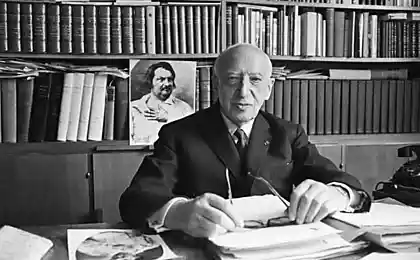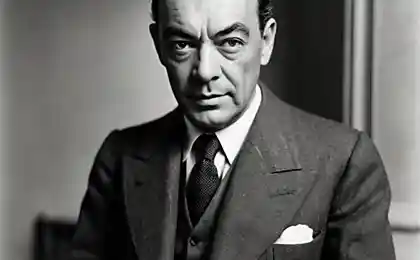182
7 Pillars of Life After 60 by Arthur Schopenhauer

Arthur Schopenhauer was a German philosopher who thought deeply about the meaning of human existence and the significance of different stages of life. Although he was known for his pessimism, his philosophy contains surprisingly practical and wise observations about the benefits of old age and the dignity of late life. After 60 years, a person can achieve the highest form of freedom and self-knowledge.
The value of Schopenhauer's reflections on old age is especially relevant in today's world, where life expectancy is constantly growing, and its quality depends on our attitude to old age. We propose to consider seven fundamental pillars of life after 60, which can be derived from the philosophical heritage of Schopenhauer.
1. Liberation from the will to live
The central concept of Schopenhauer’s philosophy is “the will to live.” It is a blind, insatiable impulse that pushes us toward constant desire, desire, and dissatisfaction. In youth, a person is completely subject to this will, which is expressed in the constant pursuit of success, recognition, wealth and carnal pleasures.
As the years pass, the riot of passions subsides: that is why old age is a time of reflection and calmness of reason, when the waves of desires no longer beat against the rocks of necessity.
Practical recommendations:
- Start a daily meditation practice to realize and calm your desires.
- Keep a journal of observations of your impulsive desires
- Reduce noise by cutting out unnecessary news and social media sources
- Take time to contemplate nature and art
2. Cultivating intellectual freedom
Schopenhauer believed that with age, a person has the opportunity to rise above immediate needs and turn to pure knowledge. He argued that wisdom comes precisely in old age, when a person is freed from illusions and passions.

In the later years of life, the mind acquires special clarity and insight. Schopenhauer wrote that truly deep thoughts come to a person when he has already accumulated life experience and is able to see the true essence of things. Intellectual freedom is the ability to reflect on the eternal questions of being without being burdened by concerns about career, social status, and carnal pleasures.
How to Develop Intellectual Freedom:
- Make a list of classic literature and philosophy you’ve always wanted to read.
- Dedicate at least an hour a day to intellectual activity: reading, solving puzzles, learning a new language
- Join a philosophy club or create your own.
- Keep a philosophical journal, writing down your thoughts on what you read.
3. Accepting loneliness as a source of strength
Loneliness was not a curse to Schopenhauer; on the contrary, he regarded it as a blessing to the thinking man. In his work “Aphorisms of worldly wisdom”, the philosopher emphasized that the highest form of existence is a life in solitude, filled with reflection and contemplation.
“Anyone who does not love solitude does not love freedom, for a man is only free when he is alone.”
After 60 years of social isolation, Schopenhauer’s teachings make it possible to see it not as a tragedy, but as an opportunity for deep self-discovery and spiritual growth.
How to turn loneliness into a resource:
- Create a space for privacy in your home
- Practice Mindful Loneliness: Make Time for Yourself Every Day
- Learn to distinguish between destructive and constructive loneliness
- Use time alone with yourself for creativity: drawing, writing, music
4. Giving up social illusions
Schopenhauer was known for his criticism of social conventions. He believed that people spend an enormous amount of energy maintaining social masks and meeting the expectations of others. Age after 60 is the perfect time to break free from these shackles.
The philosopher argued that most social interactions are based on hypocrisy and superficiality. Maturity gives you the privilege of being yourself and telling the truth, regardless of public opinion. This rejection of pretense not only frees up internal resources, but also gives a special dignity to old age.
How to Free Yourself from Social Illusions
- Make a list of your true values and principles
- Rethink your social circle, getting rid of toxic and superficial connections
- Practice sincerity in daily interactions
- Learn to say no to invitations and offers you don’t care about.
5. Asceticism and moderation
Schopenhauer believed that true wisdom lies in the conscious limitation of needs. The happiness of a person is inversely proportional to the number of his desires. Old age provides a natural opportunity for simplicity and moderation.

“Wealth is like sea water: the more you drink, the greater your thirst.”
The philosopher proposed cultivating moderation not as a constraint, but as a conscious choice leading to inner freedom. In the modern world of consumption, this teaching is of particular relevance.
Practical steps to conscious moderation:
- Do an audit of things and get rid of everything superfluous
- Practice Minimalism: Ask yourself before every purchase.
- Make a “pleasure budget”: allocate resources only for the truly meaningful joys.
- Replace material pleasures with intellectual and spiritual pleasures
6. Health Care as a Philosophical Principle
Although Schopenhauer became famous for his pessimism, he emphasized physical health as a condition for intellectual activity. He believed that caring for the body is not a manifestation of selfishness, but a philosophical necessity.
The philosopher recommended moderate exercise, outdoor walks and a healthy diet. He paid special attention to sleep and proper daily routine. According to Schopenhauer, a healthy body is a tool for achieving clarity of thought and peace of mind.
Schopenhauer Health System:
- Daily walks in the fresh air for at least 30 minutes
- Eating moderation: The principle of “getting out of the table a little hungry”
- Sleeping regularly: Going to bed and getting up at the same time
- Avoiding Extreme Exercise: Preferring Moderate but Regular Activity
7. Seeing the beautiful
Aesthetic perception held a special place in Schopenhauer’s philosophy. He believed that art and the contemplation of beauty allow you to temporarily free yourself from the yoke of the will to life and touch the transcendent.
“Art is a kind of deliverance from the bondage of the will, a temporary release from the service of our desires.”
In old age, when physical pleasures no longer have the same intensity, the contemplation of art and nature becomes a source of deep joy and consolation.
How to cultivate aesthetic perception:
- Regularly visit museums, exhibitions, concerts of classical music
- Create a corner of beauty in your home: a collection of reproductions of your favorite paintings or a place to admire nature
- Practice “Slow Looking”: Learn to contemplate one piece of art for at least 15 minutes
- Keep a diary of aesthetic impressions
Conclusion: The wisdom of old age
The teachings of Arthur Schopenhauer offer a profound and non-trivial understanding of old age. Rather than viewing the years after 60 as a period of decline, the philosopher sees them as an opportunity for genuine wisdom and freedom.
The seven pillars of life after the age of 60 – liberation from the will to live, intellectual freedom, acceptance of loneliness, rejection of social illusions, moderation, care for health and contemplation of beauty – form a holistic system that allows you to turn the later stage of life into a period of flowering of the spirit and mind.
In the age of the cult of youth and fear of aging, Schopenhauer’s philosophy reminds us that old age has its unique advantages and can become the time of the most complete and meaningful existence. The main thing is to see in old age is not a problem, but a privilege.
Glossary
The will to live
The central concept of Schopenhauer’s philosophy, denoting the blind, unreasonable force that underlies everything that exists. It manifests itself as an insatiable desire for self-preservation and reproduction.
asceticism
A lifestyle characterized by self-restraint, moderation, and the abandonment of excess in order to achieve spiritual or intellectual goals.
Transcendent
In philosophy, what goes beyond possible experience is beyond empirical knowledge and sensory perception.
Pessimism
The philosophical position that the world is imperfect is full of suffering and happiness is unattainable or illusory. Schopenhauer is considered one of the main representatives of philosophical pessimism.
Esthetic contemplation
According to Schopenhauer, a special kind of knowledge in which a person is temporarily released from service to the will and perceives the object in its pure ideal form.
To see the true face of a person, pay attention to 2 things
Martha: Psychologist, traveler and source of inspiration























